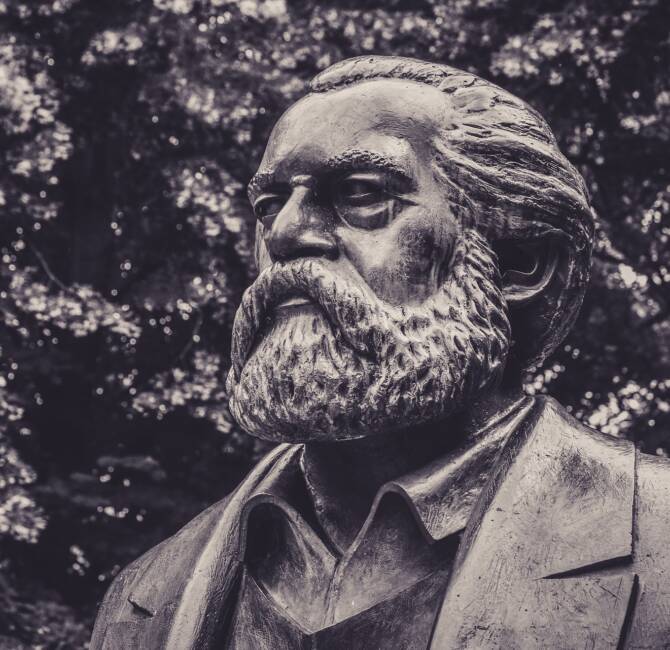This article was published online by the Magyar Nemzet on 19 November 2021.
The left liberal mainstream would suppress conservative values everywhere possible
With the advent of progressive ideology, media pluralism has lost its sense of balance, said Balázs Orbán, Political director of the Prime Minister, Minister of the State. The Chairman of the Board at Mathias Corvinus Collegium cited a study which showed that two thirds of Hungarians have relatively high levels of trust in the media.
– The Mathias Corvinus Collegium held a two-day conference on media last week featuring several prominent speakers from abroad. Why did you feel the need to organize this event?
– The media environment is undergoing transformations in the West, thus Hungary is forced to face these effects of change as well. Given the fact we share our problems, we should share our solutions as well.
– The conference was quite international – is a more domestically-oriented approach not enough to resolve these media relations?
– It sounds cliche, but it is true that technological advances create new platforms – from the development of the printing press to The Gutenberg Galaxy – but do not necessarily change the media’s monopolistic control over our consumption of information. In the XIX. century for example, people were informed of what was happening in the Parliament through what the newspapers wrote; later on, the same went for radio, then television, filling this role of information transmission. In other words, the media played a prominent role in providing information, but at the same time it held the great responsibility of maintaining objectivity. However, with the spread of the internet and social media this all changed: the monopoly ceased to exist, and anyone could become a news source or content creator. Traditional media fell into decline.
– Although, it seems that many of the former major players of the media are still around.
– This is true, but the media platforms that we considered dependable, credible sources a couple of decades ago – from the New York Times to the BBC – have clearly become tools for the progressive policy agenda.
– How has the progressive ideology contributed to the transformation of the media?
– Progressive circles responded to the aforementioned challenges by turning the media into a political mouthpiece for progressive-left-liberal ideas as this is the only way to maintain their ability to influence and operate the media business model. Opinion pluralism was thus completely overturned. In the past, the separation of the sanctity of news, freedom of speech and the provision of credible information were paramount to liberal media. But now it has become a just transmitter of the progressive liberal agenda. Western conservatives almost unilaterally report that their views have been all but banned from the mainstream media. That is why the conservative press has a very important mission: to counter this emerging imbalance and to ensure that opinions other than the mainstream are presented. We must put up a fight because otherwise we are headed towards a “soft Orwellian” world.
– What can the government do in this case?
– The mission is twofold: on the one hand, freedom of speech must be maintained as statements cannot be censored on an ideological basis, and on the other, it must in some way ensure action against infringements. These tasks cannot be entrusted to the media platforms; the state must be involved in securing public spaces and enforcing the law. In fact, the whole Western world sees it this way as well, except for those whose interest it is to preserve this current chaotic state.
– Is this a tendency in Hungary too?
– The situation is better in Central European countries compared to the West; this is mainly due to our shared historical experiences. According to studies, 95 percent of the Hungarian adult population – almost eight million people – regularly consumes media, and six million of them from a variety of sources. This means that the majority of Hungarians (in keeping with their cautiousness stemming from the communist past) are careful to observe multiple sources of information and then form an informed, honest opinion. In western Europe however, people consume information from within their bubble and receive nothing from outside of it. According to European statistics, 63 percent of Hungarians have a high or medium-high level of trust in the media, which is above the EU average. For example, the Germans and Danish have a much lower rate.
– How can the right-wing intellectuals fight back?
– A sufficient amount of conservative voices must reach the Hungarian people in order for everyone to have access to a range of perspectives. Given that we base our government policy on the beliefs of the people, we can only hope that the electorate will again give the right-wing their vote of confidence.
– Globally recognized speakers
– The Mathias Corvinnus Collegium organized a two-day international media conference titled Freedom of Expression in the Digital Age last Thursday and Friday with the following aims: exploring the role of the press today, the power of social media and the long-term effect of cancel culture. An array of international speakers shared their thoughts: Birgit Kelle from Die Welt, Gladden Pappin and Julius Krein, the co-founder s of the American Affairs, Matyas Zrno, the foreign affairs columnist for CNN Prima News, and Ralf Schuler, senior correspondent for Bild’s Berlin parliamentary office.
Gábor Hertelendy





